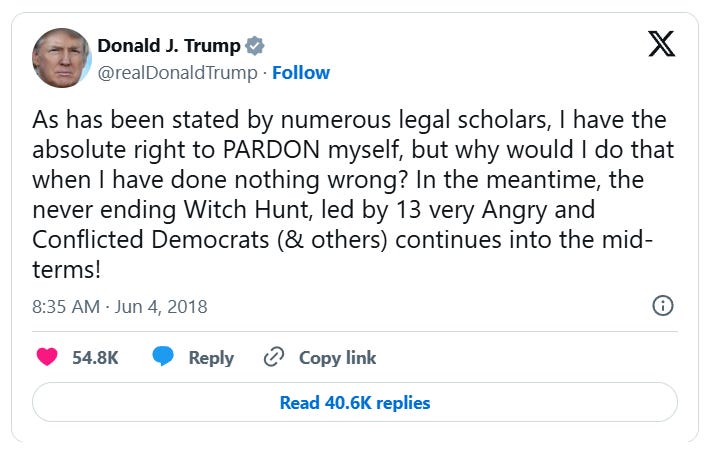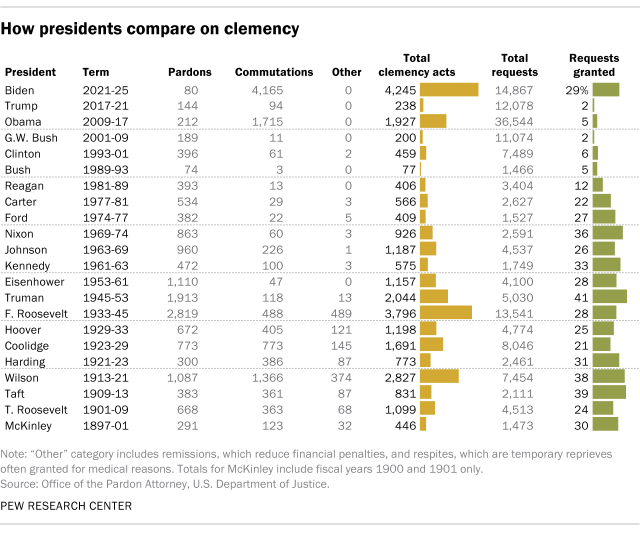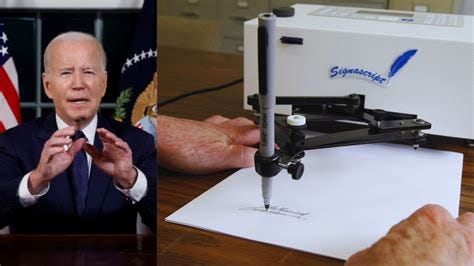Do the Obama & Biden Investigations Matter?
Will anything come of the Trump Justice Department investigations into the Russia collusion hoax, auto-penned pardons, and cognitive impairment coverup investigations?
“The scandal isn't what's illegal, the scandal is what's legal.”
One of the most frustrating “scandals” of 21st century (so far!) is what I call the “Casino Jack” scandal of the early 2000s when a corrupt lobbyist, Jack Abramoff, and his co-conspirators in Congress and elsewhere, notably former US Rep. Bob Ney (R-OH), were caught bribing or being bribed with all manner of freebies, plus other crimes. At the same time, Abramoff and his co-conspirators bilked Native American tribal nations for millions in cash. Abramoff was also convicted of mail fraud and tax evasion.
It was captured in the movie, “Casino Jack,” starring Kevin Spacey, “an actor with a special talent for playing shifty-eyed, double-dealing reptiles,” as described by a New York Times movie reviewer. There were two movies produced about the Abramoff scandal, but the Spacey version, which bombed at the box office, is the more colorful of the two. The other is a documentary. Abramoff no doubt enjoyed the attention.
Abramoff was convicted in 2006 and served most of his four-year sentence, way less than he could have served but for his cooperation with federal officials. He would later return to prison five years ago in a cryptocurrency scandal in which he once again violated the Lobby Disclosure Act. Some people never learn. Or perhaps old habits die hard. Between his stints in prison, he wrote a book proposing largely laughable lobby reforms: “Capitol Punishment: The Hard Truth About Washington Corruption From America's Most Notorious Lobbyist.” I read it so you didn’t have to.
What frustrates me about the Abramoff scandal wasn’t that he was caught or went to jail. It’s that the law worked, and still, Congress felt the need to do more. He and dozens of others, including partners and government officials, were caught, investigated, prosecuted, and convicted. The law worked as intended, but alas, Congress fell victim to the politics of the day, and in 2007, it enacted “The Honest Leadership and Open Government Act,” or HLOGA for short. It is one of the most prescriptive and restrictive advocacy laws conceived by modern man. It even prevents a registered lobbyist from covering the cost of a cup of coffee when meeting with a legislative branch employee, and resulted in time-wasting debates and introspection about whether congressional staff could accept promotional items from lobbyists or constituents accompanied by lobbyists, such as hats (yes) or coffee mugs (no).
There were numerous reforms that Congress could have implemented, but it missed the mark with HLOGA. Republicans were desperately trying to keep control of Congress for the 2008 elections while dealing with a lobbying scandal that mostly tarred them. Jumping on board HLOGA didn’t help; they were clobbered in the 2008 elections, which also resulted in Barack Obama’s election as President.
“Kelly, you can’t even buy me an apple,” US Senator Chuck Grassley (R-IA) told me after it passed. Not that I ever did. If only it were that easy to buy or rent a vote.
It also outlawed or complicated advocacy programs that put members of Congress and staff in contact with constituents, as well as many private sector programs designed to educate them on public policy issues. In my case, that included several of us from food companies paying for staff, at our collective expense, to travel to exotic places such as South Central Pennsylvania or the San Joaquin Valley (Modesto!) to tour food manufacturing plants during the August heat, learning how everything from tomatoes to Goldfish crackers was processed. There was no competitive advantage. It was purely a matter of policy and regulatory fact-finding.
It doesn’t exactly conjure up the image you may have of congressional junkets. It was all very transparent, including mandatory public disclosures, but no matter. The law is here to stay, and I don’t think we’re any better because of it. The firewall between Congress and its constituents has never been higher or thicker.
How silly are aspects of HLOGA and the House and Senate Ethics Committee rules that followed? Last week, US Senator James Lankford (R-OK) was interviewed on my friend Hugh Hewitt’s national afternoon broadcast on the Salem Radio Network. Twice, in fact. Lankford just published a new, largely faith-based book, “Turnaround.” But because Lankford was speaking from inside a government building, he could not and would not say anything that would promote his book. The interview continued the next day when Lankford was safely ensconced in non-government quarters. Hewitt was even reluctant to mention the book title. Lankford’s new book, which I have yet to read (but will!) contains lots of stories about his family and his legendary, long-time leadership of Falls Creek, a large and historic Baptist children’s summer camp in the Sooner State. It’s not a partisan endeavor, from everything I’ve read and heard. It contributes to a more civil atmosphere in politics.
If the notion of a building and its restrictions about what Lankford can say about his book on faith and civility seems silly to you, it is, to a degree. However, Lankford chairs the Senate Ethics Committee. There are very prescriptive rules regarding the engagement in political or private activities in government buildings, and he must know and follow them diligently. Exceptions ought to be made for media interviews that are broadcast in the public arena. It shouldn’t matter where they are held, so long as public facilities such as government phones or the Senate Recording Studio aren’t used. Those are clearly for official purposes.
Which brings us to the three largest political scandals to emerge, at least publicly, since January: the cover up of President Biden’s cognitive impairment, as has now been widely disseminated courtesy of at least three books, along with our own powers of observation; the Biden pardon auto-pen scandal; and now, the declassification of heretofore confidential documents detailing how our intelligence and law enforcement communities, likely including President Obama and leading White House staff, conspired to “subvert the will of the American people” after President Trump won the 2016 election via what is now commonly referred to as the Russia Collusion Hoax.
The Obama Russia-Collusion-Hoax Conspiracy
Director of National Intelligence and former US Rep. Tulsi Gabbard (D-R/HI) has referred the matter to the Department of Justice. You can read some of her declassification here and here; however, the public versions still feature numerous redactions. The DOJ versions will not.
The issue swirls around a couple of CIA determinations. First, whether Russia had the capacity, the intent, and the means to hack into our elections electronically (apparently not), and the infamous dossier by former British spy Christopher Steele, including reports of Russian prostitutes doing weird things with Donald Trump in a Moscow hotel room, was authentic (obviously not).

I won’t recount the whole sordid thing here, which included the well-known meeting between then-FBI director James Comey - the world’s tallest teenage girl, as described by The American Spectator’s Ben Domenech - and then-President-elect Donald Trump over the infamous “pee tape” in the now-discredited Steele Dossier. Agents for the Hillary Clinton campaign, including court-sanctioned Democratic super-lawyer and Clinton legal counsel Marc Elias, also helped subsidize and circulate the dossier to senior FBI officials.
The Washington Post and The New York Times have yet to return the Pulitzer Prizes for their largely false or misleading reporting related to the Russia collusion hoax.
It’s bad enough that the Obama Administration was doing everything in its power to disrupt and discredit the incoming Trump Administration. There’s no evidence of anything close to that ever happening during hostile transfers of power. But did Brennan and others not only conspire but also lie to Congress or violate other laws under which they can be prosecuted?
We’ll find out, but these people, while evil, are no fools. No clear violation of federal law has been identified at this time. Evil people have a way of cleverly covering their tracks. We’ll have to see what the Attorney General and her team come up with, but based on their work with the Jeffrey Epstein “files,” I’m not counting on any prosecutions, despite there being a clear assault on our democracy.
The Biden Auto-penned Pardons
“…he shall have Power to grant Reprieves and Pardons for Offences against the United States, except in Cases of Impeachment.” Article II, Section 2, Clause 1 of the Constitution of the United States
The Constitution grants broad authority to the President of the United States to “grant reprieves and pardons” for federal crimes. Congress, to the best of my knowledge, has never tried to enact legislation to regulate pardons, and there’s nothing in the Constitution that grants them such power even if they wanted to. The Supreme Court, as recently as 1974 (the year Gerald Ford pardoned Richard Nixon) has confirmed, in Schick v. Reed, that the Constitution gives the president “plenary authority” to “'forgive’ a convicted person in part or entirely, to reduce a penalty in terms of a specified number of years, or to alter it with certain conditions,” according to Congress.gov.
We therefore hold that the pardoning power is an enumerated power of the Constitution and that its limitations, if any, must be found in the Constitution itself.
The United States Supreme Court, Schick v. Reed, 1974
There are Supreme Court cases and numerous White House and Department of Justice legal memoranda regarding what a pardon may or may not include. The Constitution imposes only one restriction, and that is on matters of impeachment. The President can’t pardon, say, his Vice President if he or she has been impeached. The same is true if a President tries to pardon himself, which is also not entirely clear under the Constitution (I agree with Jonathan Turley, a well-known pundit and George Washington University Law Professor, that a President can pardon himself, as odious and inadvisable as that would be, unless he’s been impeached).
Other court interpretations add additional “restrictions,” including the inability of a President to pardon preemptively - the power can only be exercised after a crime has been committed. However, one can argue that Biden’s pardon of his son, Hunter, was slightly prospective. It was issued the very day that covered all federal crimes (December 1), which means he may have had a few hours to commit a few more without consequence. There’s no suggestion or evidence he did, but no matter, it’s all moot now. Ford’s pardon of Nixon in 1974 was controversial in some quarters for how broad it was, and the lack of specificity on what crimes Nixon may have been guilty of committing (he was never prosecuted beyond an impeachment resolution reported by the House Judiciary Committee, but never the whole House).
The question with the Biden pardons and commutations, however, along with the sheer breadth and record-setting volume, is how far he can “delegate” his signature, if not the decisions themselves. In a softball New York Times interview, Biden admitted a considerable degree of verbal delegation, including “categories.” House Oversight Chair James Comer (R-KY) and his investigators have disclosed a memo authored by then-White House Chief of Staff Jeffrey Zients, which authorizes the use of an auto-pen for pardons. However, does the President have the power to delegate such authority?
The answer is no. The Constitution does not give the President the power to delegate his pardon authority. President Trump issued an executive order on June 4th directing the DOJ to investigate the possible use of pardons and whether White House staff conspired to deceive the public about Biden’s alleged cognitive decline.
Some partisans were highly suspicious, even critical of Donald Trump’s method of verbally declassifying documents as he hurriedly departed the White House in early 2021. He was even indicted over it. But I can’t square criticism of that with the belief that Biden’s imagined delegation of pardon powers was somehow okay.
Who knows what the DOJ will conclude or recommend? I guess that the DOJ is likely to file a legal challenge to some of the pardons and commutations, and ultimately, the Supreme Court will decide the legality of Biden’s pardons and provide clarity on what the President may or may not do to delegate his signature to a machine or via an aide.
But will anyone be prosecuted or go to jail? Highly unlikely, based on the evidence that’s emerged thus far. However, at least the current and future White Houses will have more clarity and guidance on how to handle presidential clemency decisions. At most, some of the pardons and commutations may be vitiated.
The bigger scandal, of course, is the sordid history of clemency since and including President Clinton’s pardons and commutations for terrorists such as Susan Rosenberg, a Black Lives Matter fundraiser who helped set off a bomb outside the US Senate chamber in the US Capitol in 1983 as part of the infamous May 19th group, and corrupt international financier Marc Rich. Biden’s abuse of his clemency powers to grant broad pardons to people who didn’t request them or have been prosecuted for crimes, real or imagined, of people like Dr. Anthony Fauci or members of the discredited House Special Committee on the January 6, 2021, riots, is the more noteworthy abuse, but even then probably not illegal.
When it comes to pardons and more, Lord Acton’s 1887 adage remains true. “Power tends to corrupt and absolute power corrupts absolutely.”
Jed Rubenfeld of The Free Press agrees: “The real scandal lies in the preemptive pardons of Hunter Biden, Anthony Fauci, and other friends, allies, and family members. These are the pardons where it’s most likely that Biden understood what he was doing, despite his failing mental powers. ‘I consciously made all those decisions,’ Biden told the Times.”
I hear you, Trump haters, but park your “whataboutism.” I’ll save discussion of Trump’s pardons for another day. I have issues with some of them as well, but they are unrelated to abuses of delegation.
The use of auto-pens is ubiquitous. I used one (rarely) as Secretary of the Senate to sign legislation passed by the Senate, certifying its accuracy through the enrolling and engrossing process, like a notary public. Legislation to regulate their use in official government activity is overdue and welcome, if only to avoid the kinds of abuse now made infamous by the Biden White House.
The Biggest Scandal: Hiding Biden’s Cognitive Impairment
Anyone who watched the Trump-Biden presidential debate on June 27, 2024, saw firsthand the cognitive impairment of Joe Biden. For most Americans paying attention and not consumed by delusional partisanship or Trump Derangement Syndrome, or both, evidence of this had been apparent as far back as the 2020 election, if not sooner.
While we wait to see if there was evidence of a conspiracy to cover up Biden’s infirmity, three invocations of the Fifth Amendment from Biden’s White House physician and two others suggest there may be. Plus, we have oodles of examples of the media helping facilitate, if not actively participating in, such a cover-up, including Jake Tapper, the CNN “journalist” who coauthored one of the post-election “tell-all” retrospectives on the Biden 2024 campaign. It’s entitled “Original Sin,” but I refused to buy and read it, given Tapper’s complicity in the scandal. Read instead Jonathan Allen’s and Amie Parnes’ excellent book, “Fight: Inside the Wildest Battle for the White House.” It’s more a book about the totality of the 2024 election, especially about the disaster that was Kamala Harris, but it’s worth your time.
Tapper is right about one thing. In a softball interview on Hewitt’s radio show recently, Tapper stated that there needed to be a “reckoning” in the media, especially among Democratic White House officials, not that there’s much difference. He should lead the way. He has yet to apologize or be held fully accountable for his complicity in the scandal. Instead, he’s profiting from it.
Again, don’t look for anyone to be held to account. And I’m not even looking for very much legacy media coverage of it, either, even as it appears Dr. Jill Biden was following Edith Wilson’s example after her presidential husband, Woodrow Wilson, suffered a debilitating stroke during his second term. And don’t forget Hunter Biden, who, by some accounts, was almost serving as an acting president during Joe Biden’s final six months. Hunter has been pardoned for any crimes he’s committed, including those he might have committed on the day of his pardon after it was signed, so there’s that.
Still, the investigations and court challenges may prove helpful, if only to help the public understand just how corrupt the Biden Administration, their allies, and the Acela corridor media misbehaved all these years. Many of us will be forever tormented by the injustice of clear violations of law by high-ranking government officials going unpunished, including Hillary Clinton’s illegal private home server handling confidential and classified documents and deleting evidence. It’s why so many people are also frustrated by scores of influential people allegedly involved with Jeffrey Epstein and his sordid behavior from being held to account, despite scores of young victims and obvious crimes.
The question is, will Americans hold these players to account through their ballot box and their dollars? The record on that score isn’t promising.
Manage your expectations. That is, keep them very low. Double standards are very much alive and well.







A very good article - though it does lead to the frustration that there is nothing to be done.
Thanks. Let’s see what DOJ comes up with. Unfortunately, too many devious people have had too much time to cover their tracks.